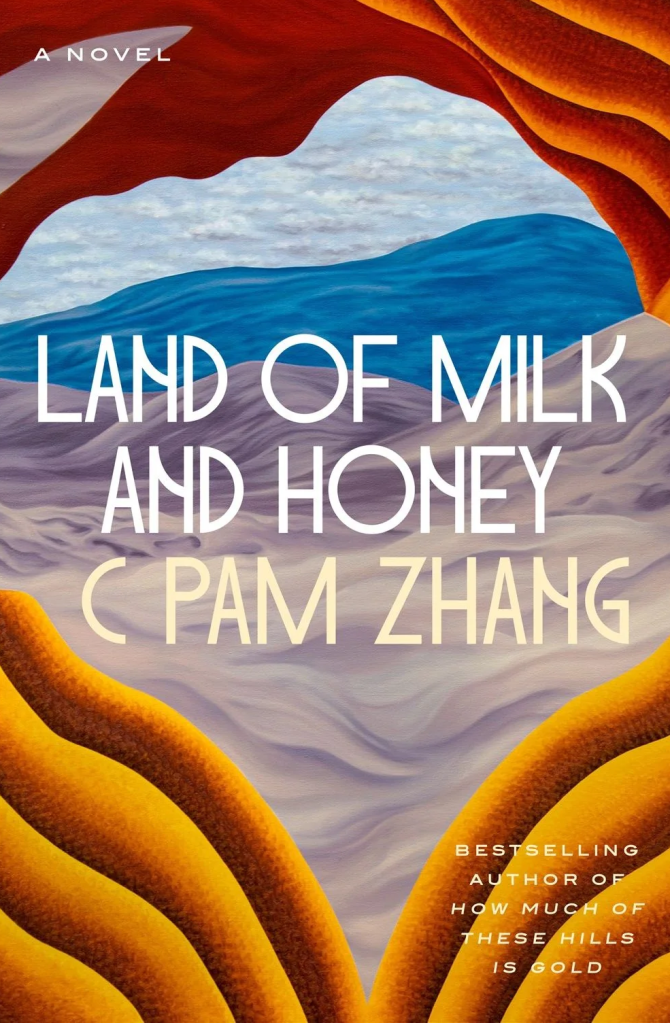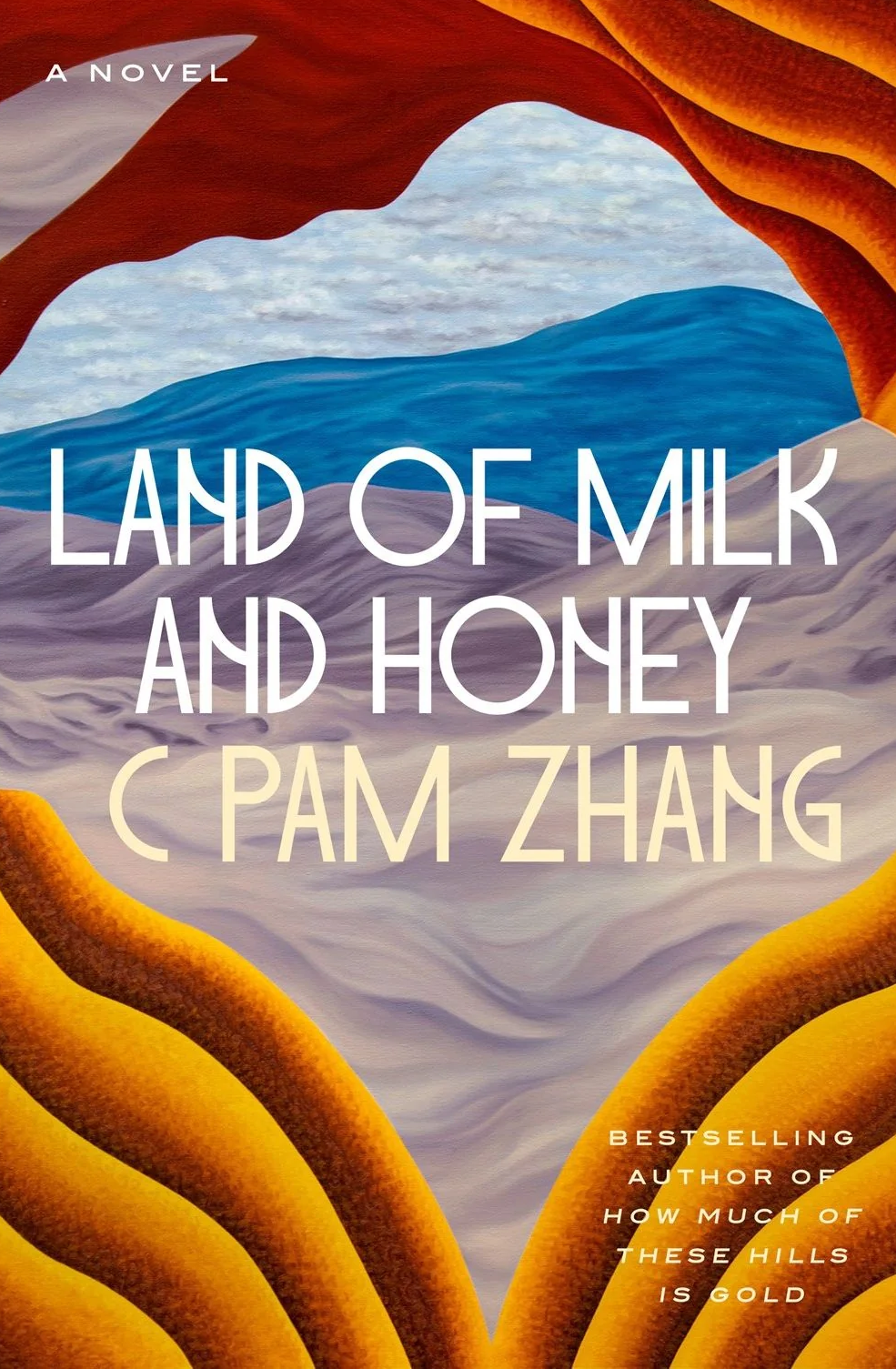The impending climate disaster shouldn’t come as a surprise to all but the most entrenched denier, or those who have attained a level of ignorance envied by the proverbial ostrich with its head in the sand. We know it will disproportionately affect the haves and the have-nots, and that the world the next generations inhabit won’t necessarily look like the one we were born into. C. Pam Zhang takes this all-but-certainty a depressing and delicious step farther with Land of Milk and Honey.
Our unnamed narrator is a chef rising in her craft and prestige when the world’s crops fail and nearly all food other than tasteless but nutrition-dense meal has vanished. This flavorless world drives her into a depression. Hope comes in the form of a job on a mountaintop enclave with a mysterious employer whose access to ingredients is more than enough to keep her from asking tough questions. In her employer’s kitchen, the chef toils alone to make meals for wealthy guests, and her only real contact is with her cat and her employer’s daughter. As conditions in the outside world worsen and her employer’s need for more investors grows, the chef is pressed into playing along with her employer’s rising mythology.
Although she’s one of the few behind the curtain to that mythology, she finds herself taken by it, too. The food is pleasure, but it’s also proof of concept for her employer’s plans to save or remake the world–as he sees it. Dying or extinct plants and creatures are preserved or remade in a lab, where scientists also tinker with existing species to make them weather the climate disasters better. Those with deep pockets are apt to open their wallets for this luscious spread of what was thought lost–or for the promise of a spot on the mountain. Appetite for the finer things only grows as things grow scarcer for the rest of the planet, and the desperation of the masses puts pressure on those with plenty–those on the mountain–to share. The chef’s spot in her employer’s plans is secure, but even with everything she could ever want at her fingertips, she can’t help but wonder if this truly is a dream come true, or just a pipe dream.

Above all else, Land of Milk and Honey is sensual. That sensuality is wholly centered on the delights of food, of juicy meat and crispy pastries and rich sauces swirling. Even the book’s few bedroom scenes are described in detail that could be called obscene if it weren’t describing the sensations of sex like one would an incredible meal. The chef is fully inclusive in her rapture about food, giving the same salivating detail to the preparation of the rarest meat to a greasy California burrito. Her singlemindedness is what sets her apart from other candidates, and it’s also the quality that propels her forward when even her other sensibilities are telling her to flee, because if she leaves, she loses access to that for which she lives: good food and the ability to make it.
Were that or her paycheck the only way her employer has her hooked, the chef’s position could be called one of choice. Her ability to consent to her role in her employer’s ambitions is hindered by a fun little collection of inequities between them. New laws mean the chef is responsible for her late mother’s medical debt, jeopardizing her ability to return to America if she were to leave the mountain. Her utility to her employer beyond her cooking ability is directly tied to her being a young and conventionally attractive woman of Asian descent, and her contract controls even how much she’s allowed to weigh. She’s barred from talking to other staff, and from leaving the mountain for any reason, including seeking veterinary services for her ailing cat. Most of all, the disparity between the mountain and everywhere else in the world means she could be left more than homeless, jobless, or purposeless if she quit or was fired–she would be susceptible to dying of starvation or any number of freakishly mutated diseases.
In both the luscious devotion to food and the steady undercurrent of “eat the rich,” Land of Milk and Honey is in fine company with the likes of The Menu. While there is a clear moral to the story in the book’s final chapter, Zhang writes deftly to keep any of her characters from being clear cut. The wealthy bring different shades of cowardice and desperation; the employer’s insistence at avoiding past mistakes and hardship gives depth; even the chef is spared the role of being the moral center of this story. The messiness in turn reveals truth: that when the chips are down, human instinct and that of crabs in a bucket are largely the same. It’s humbling to see that impulse play out on a fictional stage that feels so plausible. Perhaps we can’t overcome that impulse, Zhang seems to say, so much as steer it toward progress rather than hermitage.
